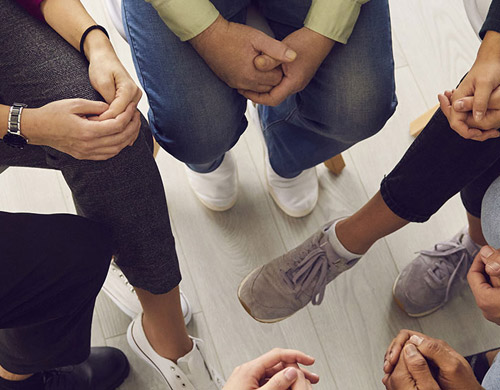Drug and alcohol addiction are difficult to address when they hurt you or someone you care about. Even though addiction is a disease, it can be effectively treated when evidence-based rehabilitation methods are explored. Long term recovery is possible.
On this page we explore how an holistic rehabilitation program can encourage you or a loved one to begin and sustain a life without drugs or alcohol.
What is Addiction Rehab (Rehabilitation)?
The term addiction ‘rehabilitation’ is applied to all of the medical and psychological treatments used to help people who have dependencies on prescription drugs or illegal drugs. Rehab treatment is best when it is tailored to suit your unique lifestyle involving a medical detox, inpatient and outpatient care, as well as relapse prevention techniques.

Facts & Statistics about Addiction in Moreno Valley
Prevalence of Substance Use Disorder, by Drug Type
(IN THOUSANDS)
- 2,7578.5%Any Substance
- 2,0886.4%Alcohol
- 1,0683.3%Ilicit Drugs
- 2060.6%Pain Medication
Drug- and Alcohol-Induced Deaths by Age Group, California, 2016
- Alcohol-Induced
- Drug-Induced
- 18 to 250.5
- 9.6
- 26 to 354.3
- 13.9
- 36 to 6424.2
- 22.9
- 65+23.7
- 9.4
Drug Use, by Selected Type and Age Group California, 2015 to 2016
- 12 to 17
- 18 to 25
- 26+
- Marijuana*13.2%
- 34.0%
- 13.5%
- Misuse of Pain Medications3.5%
- 8.0%
- 4.3%
- Cocaine0.8%
- 7.2%
- 1.8%
- Heroin0%
- 0.4%
- 0.2%
What are the treatment options available in Moreno Valley?
A consolidated treatment approach offers a successful way to identify & tackle the root causes of drug or alcohol addictions. It is necessary to treat the symptoms of addiction, but coping methods need to be implemented, in order for you to work with the problems that lead to the drug or alcohol dependency.

Private Residential Programs
Residential treatment programs require you to live at the rehab center and undergo your treatments on-site. One of the primary benefits is having access to 24/7 treatment and support. If you leave your home and move into a treatment facility, you can remove yourself from vulnerabilities to stressors that may have influenced your decision to abuse substances or alcohol.
When the environment around you is supportive, your chance of relapse is much smaller and you are far more likely to complete your residential rehab program.
Residential addiction treatment programs are useful for patients with serious drug and alcohol dependencies, co-occurring illnesses or dual diagnosis. We understand that the first year of recovery are usually pivotal and after a residential treatment program, you must stay focused to maintain long term recovery. When you have completed your residential treatment programe you will want to be more independent and set goals for your new life.
Do You Need Help?
Let us help you start your recovery journey today.

Sober Living Programs
You can learn the skills required to stay sober by participating in a sober living program, which will support you through the transitional period. This is achieved by:
- A house manager who checks up on you daily
- Supporting you on the best way to behave in recovery
- Fostering positive friendships with others in recovery who can relate to your experiences
Outpatient Programs
Outpatient treatment programs offer greater flexibility because you can continue work commitments while living at home, but you attend the rehab facility for any treatments.
Outpatient programs help with:
- Educational workshops on drug use
- Counseling and therapy such as individual or group therapy – Your individual needs will determine the duration of your outpatient program, which could extend from a couple of months to a year.
Detox Only Programs
The need for detoxing a substance from your system is the first phase towards rehabilitation, as it rids the system of the substance, putting an end to your physical dependence. You typically experience withdrawal symptoms as a natural reaction to the absence of substances in your body.
This marks the start of your rehab journey, following which you will begin to overcome the latent causes of your addictive behavior to avoid repeating those same cycles. Detox can result in some cravings and withdrawal symptoms for a few weeks after your detox has ended. You can reduce your chance of relapse by building coping strategies for long-term recovery success.
Paying for Private Treatment
The private treatment costs may be covered through your healthcare policy or paid with your own funds. Many insurance companies will cover at least parts of your rehab treatment, including a drug or alcohol detox, rehab programs, and any medicines you may benefit from.
Your provider along with their terms will determine how much cover you can claim for. Before you enroll in a treatment program, you should speak to your insurance provider to learn how much cover you have. Go to our Verify Your Insurance page to learn more about the cover you qualify for.
If you choose not get cover from your insurance provider, you will need to pay the treatment centre directly. Some rehab facilities can offer a payment plan to clients who are unable to pay the full cost of rehab.
State Funded Programs
If you are caught in the cycle of substance dependence but do not have the resources to pay privately for it, you may apply for a state-funded rehabilitation program.
With the aid of funds from a combination of state, federal and Medicaid budgets, these types of treatment programs help to remove hurdles to treatment by offering:
- Medically-assisted drug or alcohol detox
- Rehabilitation programs and extended support
State-funded treatment programs offer relief to people with little to no disposable income or do not have health insurance. So that you can quality, you will need to provide information about:

- Proof of your financial situation
- Proof of where you live
- Your personal medical details regarding your addiction
- Proof you have the legal right to live in the US
https://www.grants.gov/ has all the info you need to start the application process.
This booklet has contact details for your state agency.
The following state-funded addiction rehab programs are available in Moreno Valley:
Vital Treatment and Recovery Ctrs Inc
10467 Morning Ridge Drive, Moreno Valley, CA 92557
951-379-1195
vitalrecoverytreatment.comProvidence Recovery Centers Inc
11165 Bonnie View Avenue, Moreno Valley, CA 92555
951-221-1805
https://www.providencerecovery.org/Inland Empire Teen Challenge
5445 Chicago Avenue, Riverside, CA 92507
951-683-4241
https://www.teenchallenge.org/
Maintaining Addiction Recovery in Moreno Valley
The early stages of addiction recovery can feel difficult when you finish rehab treatment. At rehab you were in a professionally supported, safe environment. Your coping skills will be put to the test when you leave rehab, as you may experience some challenges that you still need to learn to deal with. Long term recovery is more challenging if you have a severe dependency or if you return to your new life without social support structures in place. Relapse is a possibility without the right aftercare and support groups to help you navigate your new life.
The following AA/NA meetings are available in Moreno Valley:
ALESSANDRO HOUSE
Lu Owl Group, Basic, Text and Open:
28700 Alessandro Boulevard, Moreno Valley, CA 92555
Thursday: 6:00 pm
https://www.drugstrategies.org/CA - MORENO VALLEY EARLY GROUP
Participation, Closed, Topic Meeting and Handicapped Access:
24187 Postal Ave., Moreno Valley, CA 92553
Monday: 6:30 AM
http://www.inlandempireareaca.org/AA - Awakenings Club Moreno Valley
Big Book: 21516 Dracaea Avenue, Moreno Valley, CA, 92551
Wednesday: 7:00 pm – 8:00 pm
https://alcoholicsanonymous.com/
Aftercare & Alumni Programs
An aftercare program is a resource to support your recovery when you go back to your daily life. By participating in extended support, you can limit the risk of relapse which impacts up to 60% of people who have recently completed treatment. It is an essential service provided by most treatment centres.
Once you reach the end of your treatment program you must give some thought to the counseling and therapies most useful to long-term sobriety and an aftercare package will be created to support you. After you have completed your addiction treatment program you will become eligible to join an alumni community program so you can stay close to staff and ex-clients.
You can attend special events, join groups and receive support and motivation from other former clients who are also in recovery as well. You can also have the opportunity to reciprocate in the program by supporting other people if you like.
Support Groups (Fellowship Meetings)
Attending in support groups is important because connecting with otheres encourage long-lasting addiction recovery. Recovery support groups such as AA (Alcoholics Anonymous) and NA (Narcotics Anonymous) offer regular support with the help of the 12 steps and local weekly meetings.
At support group meetings, you can share and learn from other member’s personal journeys. Friendship, empowerment and accountability for our actions are key to long-term recovery, and support groups provide many with the necessary tools to stay sober.

Support for Families & Children Affected by Addiction

Addiction impacts everyone in a family to varying degrees. Support is critical for all members of a family, not only the individual struggling with the addiction.
By taking part in family support groups, families can learn to manage stressful situations more efficiently, and be able to support your family member in recovery. Receive help and support for the Family with the following support groups:
- Parents of Addicted Loved Ones
- SMART Recovery Family & Friends
- NAMI Family Support Groups
- Al-Anon
- Families Anonymous
- Alateen
- Nar-Anon









